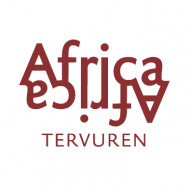JRS expands the PINDIP project with a $40,000 follow-on grant
Royal Museum for Central Africa (2019)
The Pollinator Information Network for Sub-Saharan Two-Winged Insects (PIN-DIP)
Project Details
Project News
Feb 15, 2018
Last Updated: February 2nd, 2023
Background
This is a follow-on project to the 2017-2019 Pollinator Information Network for Sub-Saharan Two-Winged Insects (PINDIP), a JRS-funded project headed by the Royal Museum for Central Africa (RMCA). PINDIP aims to increase knowledge and data accessibility for sub-Saharan Diptera, a group of insect pollinators that includes true flies and mosquitos. This project has already found success in developing a research network on pollinating Diptera in the Afrotropics, digitizing and sharing data records for six Diptera families, publishing research results and sharing identification tools, and training students and researchers. It has also led to three new “spin-off” initiatives in entomological research in the Afrotropics. These new initiatives support the PINDIP network, training, and research activities and include:
1) The Diptera museum collections as a source for taxonomic research and teaching activities (DIPTATEACH), a project to highlight the advantages of entomological museum collections in training emerging entomologists from the Afrotropics, and to stimulate activities between the RMCA and the KwaZulu-Natal Museum (KZNM).
2) The Diversity of pollinating Diptera in South African biodiversity hotspots (DIPoDIP), a project that highlights the importance of other Diptera families outside of the six families originally studied in PINDIP. This is a collaboration between the RMCA and four South African partners: KZNM, Stellenbosch University, the University of KwaZulu-Natal, and the South African National Biodiversity Institute (SANBI).
3) The Agroecology methodology in vegetable crops (AGROVEG), a project that aims to improve farmers’ health and sustainable food production through the development of the agroecological methodology that mitigates the impact of fruit flies, while emphasizing the benefical role of pollinators, on vegetable crops. This collaborative initiative includes the RMCA, the Sokoine University of Agriculture in Tanzania, and the Eduardo Mondlane University in Mozambique.
This additional funding will support these three new initiatives and extend the impact of PINDIP work. More information and project achievements are detailed on the PINDIP website.
Key Objectives and Activities
The key objective of this additional funding is to increase sharing and access of the biodiversity informatics data and tools developed in the PINDIP project to support three new initiatives: DIPTATEACH, DIPoDIP, and AGROVEG. Key activities include enhancing the PINDIP website with identification keys, photos, and outcomes from DIPTATEACH, DIPoDIP, and AGROVEG; training that features bioinformatics tools in South Africa and Tanzania; and the creation of species data sheets for common Afrotropical hoverflies to increase awareness of their role as pollinators and as key organisms in biodiversity research.
Video Progress Update, May 2020
With COVID-19 restricting travel and meeting with our grantees, JRS invited our projects to submit a short update for the JRS Board of Trustees. Though intended for an internal JRS audience, we loved these videos and share them here with permission. Enjoy!
Planned Outputs
- At least 300 existing high-resolution photos of Afrotropical Diptera uploaded to the PINDIP website.
- 200 new high-resolution photos of Afrotropical Diptera, other than hoverflies, uploaded to the PINDIP website.
- A multi-entry identification key to the genera of Afrotropical hoverflies on the PINDIP website.
- Outcomes of DIPTATEACH, DIPoDIP, and AGROVEG on the website.
- About 30 emerging entomologists from the Afrotropics trained in general entomology, collection management, and bioinformatics of Afrotropical Diptera.
- A free online repository of 15-20 species data sheets with relevant taxonomic and ecological data of the most common South African hoverflies on the SANBI website.
Planned Outcomes
Enhancements to the PINDIP website, including information about the three new initiatives, are expected to increase activity on the site and provide greater accessibility to biodiversity data and tools. The extension of the bioinformatics training will provide quality opportunities for emerging entomologists, as well as lead to an increase in the number of data sets published on the Global Biodiversity Information Facility (GBIF), further increasing access to Afrotropical Diptera data. The publication of species data sheets for Afrotropical hoverflies is the first step in developing species pages to include predicted distributions, photos, and data that covers biology, ecology, and behavior. Ultimately, additional funding from JRS will secure and expand PINDIP success in addressing the role of Diptera in plant-pollinator networks in the Afrotropical region.
Project Director Biography
Kurt Jordaens is work leader at the RMCA in Tervuren, Belgium and has led the PINDIP project since its inception in 2017. He is manager of the PINDIP website and is responsible for the publication of the PINDIP Newsletter. His interest is in plant-pollinator networks and the taxonomy and systematics of Diptera of the Afrotropics, with special emphasis on hoverflies or flower flies (Syrphidae), the most important plant-pollinators among the Diptera. He also serves as subject editor of the Belgian Journal of Zoology and of Zookeys.
John Midgley is assistant-director at the KZNM in Pietermaritzburg, South Africa and a partner in the PINDIP project. His research interests include pollinating flies, Brachycera taxonomy and systematics, juvenile insects, and biodiversity informatics. He has worked with species distribution modelling and generating checklists from museum collection data and is the Editor in Chief of African Invertebrates.
Note from JRS
The PINDIP project has been very successful in all aspects. The additional funding will allow completion of some objectives, additional training, and further establishment of Diptera research among the participating scientists and institutions. The improvement and maintenance of the website will help to support the interaction among scientists. The question still being addressed here and in other projects is “What makes a network and how do you know you have an effective one?”

